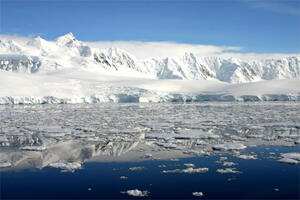Dear Hannah,
Thank you for your question. The simple answer is no. The whole world will never be underwater. But our coastlines would be very different.
If all the ice covering Antarctica , Greenland, and in mountain glaciers around the world were to melt, sea level would rise about 70 meters (230 feet). The ocean would cover all the coastal cities. And land area would shrink significantly. But many cities, such as Denver, would survive.
However, all the ice is not going to melt. The Antarctic ice cap, where most of the ice exists, has survived much warmer times.




 Biodiversity
Biodiversity
 Brain
Brain
 Genetics
Genetics
 Marine BiOLogy
Marine BiOLogy
 MicrobiOLogy
MicrobiOLogy
 PaleontOLogy
PaleontOLogy
 ZoOLogy
ZoOLogy
 AnthropOLogy
AnthropOLogy
 ArchaeOLogy
ArchaeOLogy
 Astronomy
Astronomy
 Climate Change
Climate Change
 Earth
Earth
 Physics
Physics
 Water
Water



